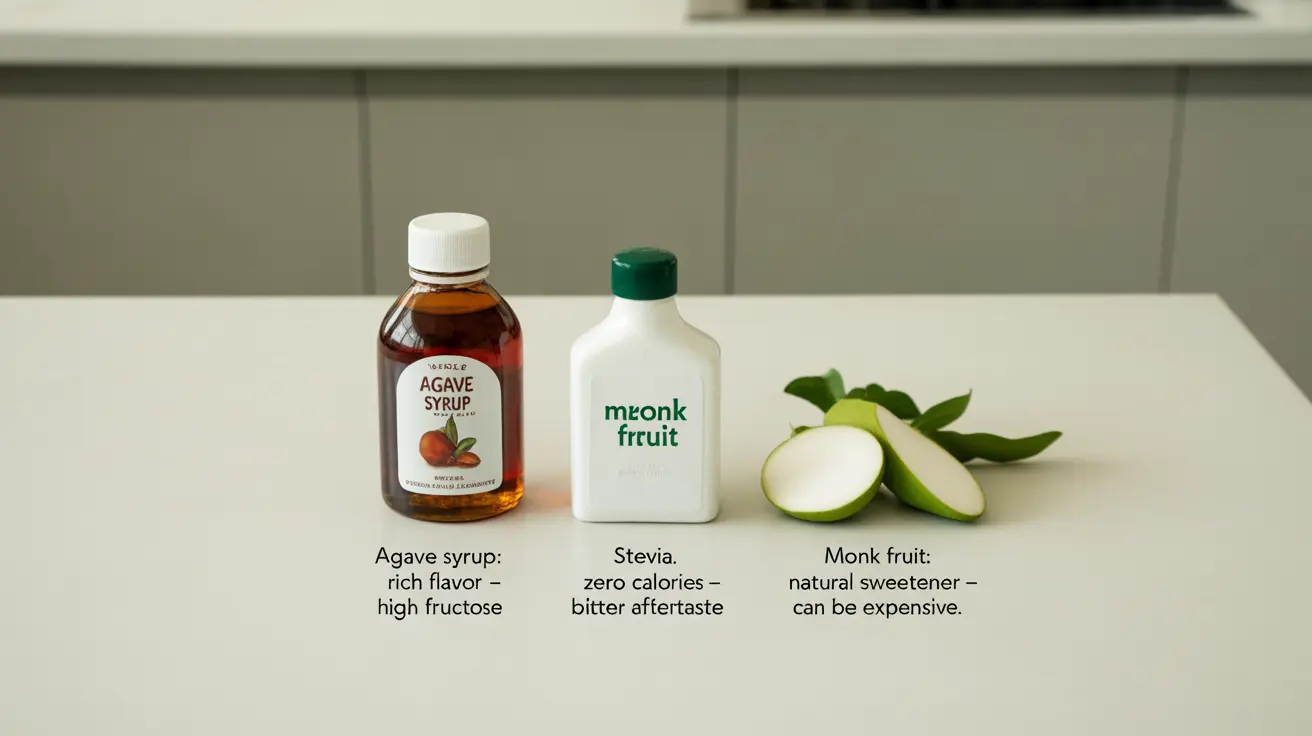For people managing diabetes, choosing the right sweetener can be challenging. Agave syrup has gained popularity as a natural sugar alternative, but its suitability for people with diabetes remains a complex topic that deserves careful examination.
In this comprehensive guide, we'll explore the relationship between agave syrup and diabetes, examining its effects on blood sugar, potential risks, and whether it truly deserves a place in a diabetes-friendly diet.
Understanding Agave Syrup's Composition
Agave syrup, derived from the agave plant, is primarily composed of fructose - sometimes containing up to 90% fructose content. This high fructose concentration is significantly more than what's found in regular table sugar or even high fructose corn syrup.
While agave syrup's low glycemic index might seem promising at first glance, its unique composition presents specific challenges for people with diabetes.
The Blood Sugar Impact of Agave Syrup
Despite its low glycemic index, agave syrup's high fructose content can be problematic for several reasons:
- Fructose processing occurs primarily in the liver
- It can contribute to insulin resistance over time
- May lead to increased triglyceride levels
- Can potentially worsen fatty liver disease
Immediate vs. Long-term Effects
While agave syrup might not cause immediate dramatic spikes in blood sugar levels, its long-term effects on metabolic health can be concerning for people with diabetes. The body processes fructose differently than glucose, potentially leading to complications over time.
Health Risks for People with Diabetes
Using agave syrup when managing diabetes comes with several potential risks:
- Increased risk of weight gain
- Potential for liver stress due to high fructose content
- Possible contribution to inflammation
- Risk of developing or worsening insulin resistance
Better Alternatives for Diabetes Management
Instead of agave syrup, several diabetes-friendly sweetener options include:
- Stevia (natural, zero-calorie sweetener)
- Monk fruit sweetener
- Erythritol
- Small amounts of whole fruit for natural sweetness
Making Smart Sweetener Choices
When selecting a sweetener, consider factors such as:
- Impact on blood sugar levels
- Caloric content
- Potential side effects
- Personal tolerance and taste preferences
Frequently Asked Questions
Is agave syrup safe for people with diabetes, and is it really a good sugar alternative?
No, agave syrup is not considered a good sugar alternative for people with diabetes. Despite its low glycemic index, its extremely high fructose content can potentially worsen insulin resistance and contribute to other health complications.
Why do experts warn against agave syrup despite its low glycemic index?
Experts warn against agave syrup because its high fructose content can stress the liver, potentially increase triglyceride levels, and contribute to insulin resistance over time. The low glycemic index doesn't tell the complete story of its metabolic impact.
How does agave syrup affect blood sugar and insulin levels compared to regular sugar?
While agave syrup might not cause immediate blood sugar spikes like regular sugar, its high fructose content can lead to longer-term metabolic issues, including increased insulin resistance and potential liver problems.
What are the health risks of using agave syrup for people managing diabetes?
The main health risks include potential weight gain, increased insulin resistance, liver stress, elevated triglycerides, and possible complications related to metabolic syndrome.
What are better sugar substitutes than agave for someone with diabetes?
Better alternatives include stevia, monk fruit sweetener, erythritol, and small portions of whole fruit. These options have minimal impact on blood sugar levels while providing sweetness without the metabolic risks associated with agave syrup.
Remember to consult with your healthcare provider before making any significant changes to your diabetes management plan, including the choice of sweeteners.




